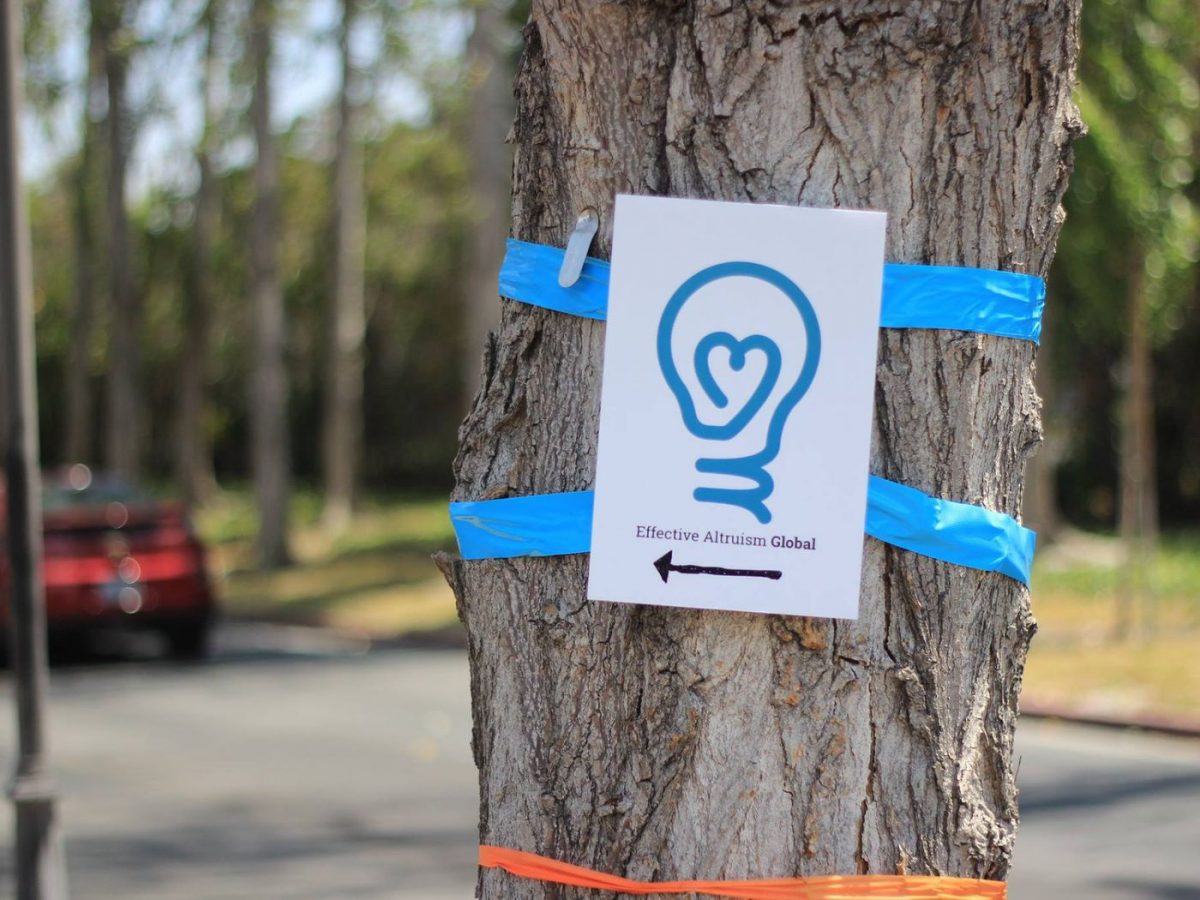As we near the end of 2022, the Marshall Institute team share their top picks for what to read, watch, and listen to over the festive period.
Sir Julian LeGrand, Professor of Social Policy
One 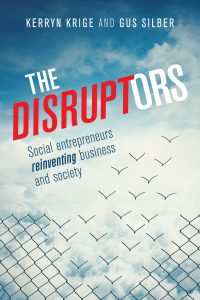 of the most stimulating books I’ve read recently is William MacAskill’s What We Owe the Future: A Million Year View. He argues that the millions of human beings not yet born have a strong moral claim on us – specifically that we should do nothing that ‘locks in’ factors that might make their lives worse. Obviously, dealing with climate change and avoiding nuclear war come to mind, but he also draws attention to other existential dangers, including those resulting from technological stagnation and future pandemics, both natural and man-made.
of the most stimulating books I’ve read recently is William MacAskill’s What We Owe the Future: A Million Year View. He argues that the millions of human beings not yet born have a strong moral claim on us – specifically that we should do nothing that ‘locks in’ factors that might make their lives worse. Obviously, dealing with climate change and avoiding nuclear war come to mind, but he also draws attention to other existential dangers, including those resulting from technological stagnation and future pandemics, both natural and man-made.
I’ve also greatly enjoyed a fascinating book by our new colleague at Marshall, Kerryn Krige: The Disruptors: Social Entrepreneurs Reinventing Business and Society. It tells the stories of fourteen inspiring social entrepreneurs in South Africa, and includes some very insightful analyses of the reasons for their successes (and occasional failures).
Stephan Chambers, Institute Director
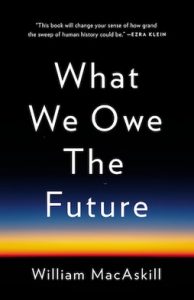
This Christmas I will finally finish William MacAskill’s What We Owe the Future, given extra piquancy since the collapse of FTX and the disgrace of Effective Altruism supporter Sam Bankman-Fried, and I will slouch towards to the end of J. Bradford Delong’s Slouching Toward Utopia: An Economic History of the Twentieth Century. I’m looking forward very much to our colleague Daniel Chandler’s book Free and Equal, and to watching Petra Costa’s Edge of Democracy (recommended by Doc Society’s Jess Search) and as much box-settage as I can manage.
Jonathan Roberts, Teaching Director
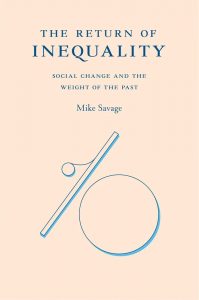 LSE colleague Mike Savage’s The Return of Inequality is at once a sophisticated contribution to understanding inequality and an urgent call to arms – inequality, for Savage, is a critical social problem that requires a transformation in our policies and our politics. Along the way there are valuable insights and observations about how we critically understand our world – whether about history, data, or the framing of social problems.
LSE colleague Mike Savage’s The Return of Inequality is at once a sophisticated contribution to understanding inequality and an urgent call to arms – inequality, for Savage, is a critical social problem that requires a transformation in our policies and our politics. Along the way there are valuable insights and observations about how we critically understand our world – whether about history, data, or the framing of social problems.
Alexander Wright, Programme Delivery Manager
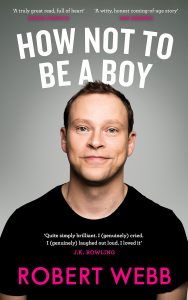
This year I have read Caitlin Moran’s How To Be a Woman and Robert Webb’s How Not To Be a Boy which work well as companion works to one another. They offer different, but equally illuminating, experiences of the impact of gendered stereotyping and the patriarchy on the authors. Both are also extremely funny writers and manage to bring levity and humour to these pressing issues and their often very moving accounts of them.
I have also been listening to the podcast series Understand: The Economy by the economic journalist, Tim Harford (also the presenter of the rather good More or Less BBC Radio 4 programme/podcast). For those not from an economics background this has been a nice and straightforward introduction to some of these economic concepts.
Leslie Labruto, 100x Impact Accelerator Director
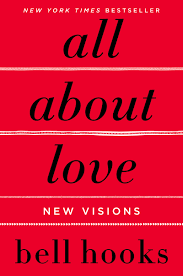 Inspired by a friend, I’ve been trying to write poetry each morning whilst sipping my coffee. Trust me, for anyone out there conscious of doom scrolling right when they wake up, this has been a pleasant substitution – or dare I say renewal. Sometimes I simply manage just a few words; other times, I am feverishly scribbling to get the words from my brain onto a page into the three-dimensional world as quickly as I can. Seeking inspiration, I grabbed a copy of bell hooks’ All About Love: New Visions. Why? In her own words, “There are not many public discussions of love in our culture right now. At best, popular culture is the one domain in which our longing for love is talked about.” For all the global backsliding we see, love is rarely discussed. And yet, love is a universal force and a powerful tool. It requires close examination, because within it is truth, commitment, and community. We are urged to remember that everything love is meant to do is possible.
Inspired by a friend, I’ve been trying to write poetry each morning whilst sipping my coffee. Trust me, for anyone out there conscious of doom scrolling right when they wake up, this has been a pleasant substitution – or dare I say renewal. Sometimes I simply manage just a few words; other times, I am feverishly scribbling to get the words from my brain onto a page into the three-dimensional world as quickly as I can. Seeking inspiration, I grabbed a copy of bell hooks’ All About Love: New Visions. Why? In her own words, “There are not many public discussions of love in our culture right now. At best, popular culture is the one domain in which our longing for love is talked about.” For all the global backsliding we see, love is rarely discussed. And yet, love is a universal force and a powerful tool. It requires close examination, because within it is truth, commitment, and community. We are urged to remember that everything love is meant to do is possible.
Keri Rowsell, 100x Impact Accelerator Manager
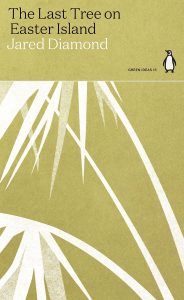 Part of the Penguin ‘Green Ideas’ series, Jared Diamond’s The Last Tree on Easter Island is both an account of his own trip to Easter Island to see the famous stone statues, and an exploration of the island as a metaphor for our modern-day world, particularly the way that humans are consistently over-exploiting natural resources. This book was recommended by Professor Saul Estrin, a Visiting Professor at the Marshall Institute, during a conversation at one of our team lunches, and for me it perfectly combined my previous working life as an archaeologist with the work that we’re doing now through the 100x Impact Accelerator. We can learn from the past, draw parallels with our present, and apply that knowledge to help create the best possible futures.
Part of the Penguin ‘Green Ideas’ series, Jared Diamond’s The Last Tree on Easter Island is both an account of his own trip to Easter Island to see the famous stone statues, and an exploration of the island as a metaphor for our modern-day world, particularly the way that humans are consistently over-exploiting natural resources. This book was recommended by Professor Saul Estrin, a Visiting Professor at the Marshall Institute, during a conversation at one of our team lunches, and for me it perfectly combined my previous working life as an archaeologist with the work that we’re doing now through the 100x Impact Accelerator. We can learn from the past, draw parallels with our present, and apply that knowledge to help create the best possible futures.
Corrina Summers, Institute Administrator
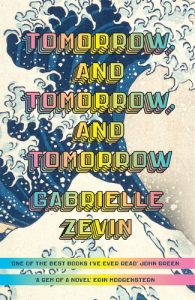
One of my favourite reads this year was Honorée Fanonne Jeffers’s The Love Songs of W.E.B. Du Bois, a mammoth yet intricate novel chronicling the successes and traumas of one African-American family over five hundred years, interspersed with commentary on the work of the eponymous sociologist. Gabrielle Zevin’s timely Tomorrow, and Tomorrow, and Tomorrow is the perfect novel for anyone entering the world of work and prompts interesting questions regarding ‘passion’ for work, the idea of a vocation, and wellbeing in the workplace. I also recommend R.F. Kuang’s Babel, Or the Necessity of Violence: An Arcane History of the Oxford Translators’ Revolution which offers an incisive commentary on the colonial history of Western academic institutions, set in an alternate Victorian Oxford where acts of translation power Britain’s industrial revolution.
I also thoroughly enjoyed listening to India Rakusen’s 28ish Days Later, which explores menstruation through an intersectional lens and reminded me of how much work remains to be done in improving women’s healthcare around the world.
Kerryn Krige, Senior Lecturer in Practice
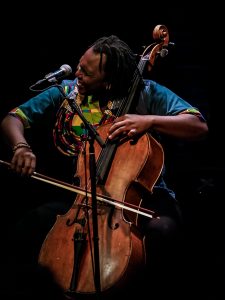 Some of South Africa’s best artistic talent is in the UK in December, or early in the new year. A wonderful way to end 2022, and welcome in 2023.
Some of South Africa’s best artistic talent is in the UK in December, or early in the new year. A wonderful way to end 2022, and welcome in 2023.
Abel Selaocoe is a South African born cellist, who released his album Where is Home (Hae Ke Kae) in September. He blends African musical traditions, with baroque music and has a number of tour dates scheduled for late 2022 / early 2023. This video describes the blending of different worlds, as he questions Where is home.
Gregory Maqoma is a choreographer, creative director, producer and dancer, founder of Vuyani Dance Theatre, an established social enterprise in South Africa, which he speaks about here. He has worked with Idris Elba, Kwame Kwei-Arma, and William Kentridge. He returns to the UK in March 2023, following tours to Canada and the US.



